Exclusive Roundtable: Top riders discuss the development of women's cycling
Gilmore, Cromwell, Bronzini, Hosking and Elvin in Qatar
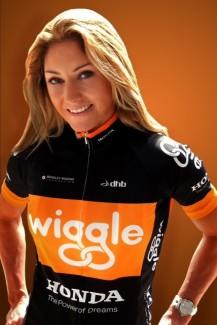
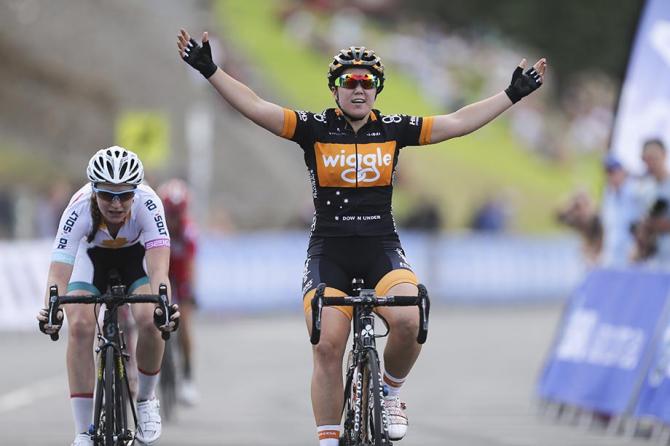
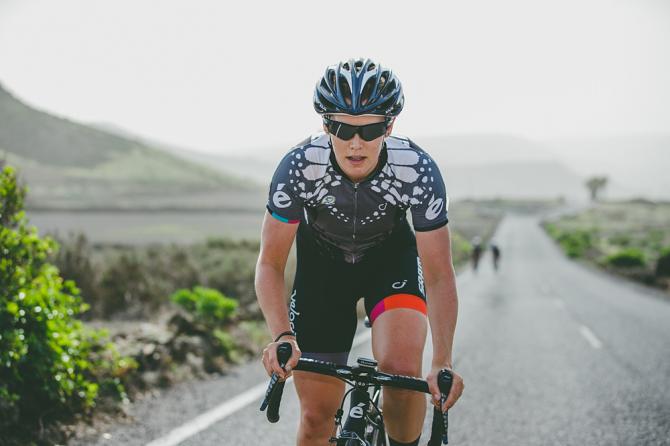
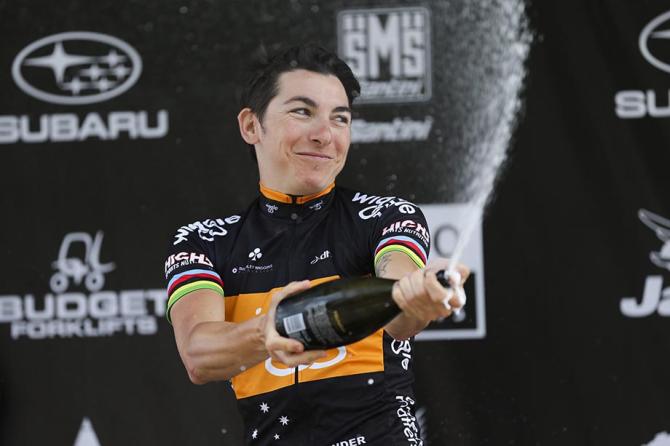
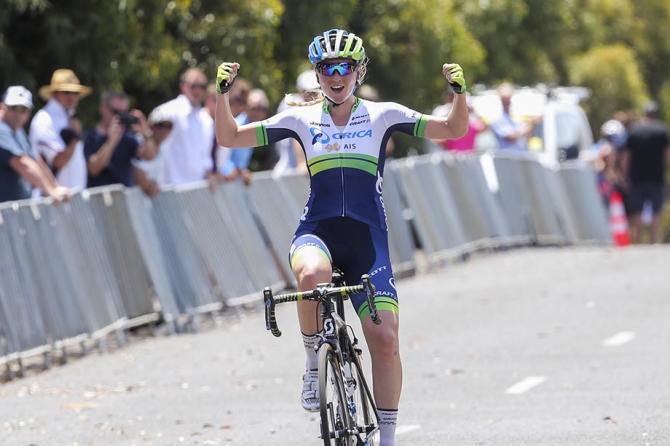
Minimum wages, equal prize money and the growth and prosperity of the sport have been fundamental issues within women’s cycling. Yet despite the hard work that lies ahead, the sport has seen shoots of promise and growth in the last twelve months. The women’s field is as competitive ever; new sponsors are joining and improved television coverage is set to change the landscape.
On the eve of the Ladies Tour of Qatar, Cyclingnews sat down with five of the most prominent figures in women’s cycling: Rochelle Gilmore, Giorgia Bronzini, Tiffany Cromwell, Chloe Hosking and Gracie Elvin to talk about the development of the sport, the UCI’s role and how female athletes are trying to make a difference.
Hosking: I remember when I came into the sport about five years ago you had teams like HTC, like Cervelo, these massive power teams and they were attached to men’s teams. I think for about two years the sport was growing but then it started to tail off a bit. You’re now starting to see the sport starting to grow a bit. So Qatar is a great example. If you look at the teams that are here and how strong they are.
Cromwell: There’s more depth to the peloton now.
Hosking: Yeah, there’s definitely more depth than when I came into the sport. Maybe the teams don’t have as much budget these days.
Gilmore: Well back in the day T-Mobile, that was impressive and was running like a real professional organisation. Like you say Tiff, there’s a lot more depth now. You can go into a race thinking you can win as an individual. That’s been a massive shift because you now can’t go in thinking that you can win on your own. You need a team around you to win a bike race. In my opinion, you could compete and win on your own 10 years ago. I think Giorgia, you and I can both say that we’ve won races when we were solo and the sport wasn’t that professional.
Hosking: I mean if you look back there were some low points. When we lost Primevera Rosa.
Cromwell: And of course Tour de l’Aude.
Gilmore: They were pretty disappointing moments for cycling. Last year though when we had the women’s Tour of Britain and the La Course.
Cromwell: And all these new races have been given higher category status. They’re being held in high regard.
Elvin: The Tour of Britain last year was a massive highlight for our sport. It probably came second to the La Course race. It exceeded all expectations.
Hosking: And do you know what, it also stood on it’s own. It had the same name as the men’s tour but it wasn’t held at the same time and you still have amazing crowds. I heard that the communities that held it made their money back, plus they brought in more. That’s what you need for women’s cycling and that’s something that Rochelle pushes a lot. It has to be something that’s a sustainable business model, otherwise you’re not going to pull the sponsors in. I think that the Women’s Tour showed that, and it can be if it’s done right.
Gilmore: Well the Tour of Britain met with me two years ago about a Women’s Tour and they said that they wouldn’t do it if they couldn’t do it properly and did their research. They flew to meet me three times, two years before they even announced that they were going to do a Women’s Tour. So they ticked every box. They didn’t just take my advice, they saw others but they asked the questions and they did their research well.
Cromwell: Even post-race they were incredible. I do the prize money for my team and I got a delayed payment but they sent me a personal email saying that it should never have happened.
Elvin: And what stood out for me was that every day they had all the school kids lining the roads. That for me, was so important for the next generation coming through. It’s invaluable, it’s priceless. They were all so excited and then asking their parents where they could ride. That was the best for me.
Gilmore: Some of our riders like Marianne Vos were signing autographs for two hours after the end of the race. It was just continuous.
Bronzini: The Women’s Tour was something amazing. It was professional and we need more races like that. If you look at the Giro I think that the women could probably race for two weeks.
Hosking: It’s like what Gracie was saying, you need to engage with people in order to get them invested in the athletes. If the children want to get into cycling when they’re older it’s going to get their whole family into it as well. If you’re able to engage with those people you can help grow the sport as well.
Gilmore: You’re right, Chloe. We can talk about the organisers and what they’ve done but at the end of the day credit to the athletes for what they’ve done. I think women have taken it into their own hands.
Elvin: Yeah, and it’s the strength of social media. That’s one of the most important things. We can take matters into our hands, create our own profiles and images, of what we want cycling to look like. Rochelle, you do that so well and we do it all personally with our own websites. I think that’s what all teams need to do, to keep pushing their stuff out there all the time. There’s only so much we can complain about when it comes to not being on TV. We need to just put it on the internet, we need big sponsors, someone to care enough to put our races on live streaming and invest in the sport.
Gilmore: It’s all down to the change in attitude that the athletes have had. If you think about five years ago, the amount of complaining there was about coverage, the attitude change in the last two years has been significant and think that’s what has impacted the most. Everyone has changed.
Cromwell: I think we’ve all become more accessible as well. Teams now have started to employ video staff, there’s more social media and all the riders are getting involved. We at Velocio-SRAM do our thing. Gracie, you’ve got the Backstage Pass show at Orica.
Gilmore: Rabobank have started to do it.
Cromwell: Yeah, so it’s engaging the fans and it’s giving them access that they didn’t have before. That’s so valuable for our sponsors and it’s made us more….recognisable I guess.
Elvin: It doesn’t mean that we’re putting on make-up everyday. It’s just showing our true personalities and that’s what people want to follow. There are battles in the race, and the fans want to be a fan of Chloe or Giorgia, and they want to see the girls race each other. It’s not about having to be supermodels. It’s a whole sport.
Gilmore: It’s not just about being a glamorous sport, it’s about making it real. That’s what I think the sport is open to doing. So if we can’t get the coverage through the mainstream media then we’re sharing our personalities through social media.
Bronzini: I think one of the ways they can develop our sport is also to make sure that there are more races from the women’s side that run alongside the men’s events. For example, we did the Cadel Evans race last week and it was amazing. It was so professional.
Cromwell: And it wasn’t even a UCI race. It was a national race.
Hosking: It was fantastic. It wasn’t on TV but it was on the big screen and it was a chance for us to show how exciting women’s cycling is, and can be.
Bronzini: Maybe some people thought that the women only do simple races that are boring but when they see us race they’re impressed.
Gilmore: That all started with the Olympics in 2012. People got to see a race from start to finish and thought ‘wow’. And since then when we’ve had the opportunity to have exposure we’ve performed.
Hosking: That goes back to the depth we talked about. It’s more and more competitive.
The Race Calendar
Gilmore: This year the UCI have accepted every offer they’ve had from race organisers who have said they would put on a women’s race. The result from that is a lot of travel for the teams but little in the way of structure. Believe me, there’s a lot of work being done on changing the structure of the calendar. Right now there’s a lot of clashes and a lot of travel for the athletes and it’s difficult.
What I’d propose is something that has more structure. It doesn’t have to dovetail with the men’s calendar.
Cromwell: But to have some races linked and to have more globalisation would be good. The problem is that we have a lot of great races but the majority are in Europe. I’d like to see more from other nations so that riders there have more of a pathway into the peloton. But like you say Rochelle, without having a good calendar some nations suffer.
Gilmore: Two years ago there were complaints because there wasn’t enough big races and many of them were dropping off the calendar. All of a sudden we have too many big races to choose from that are clashing and to some extent that weakens the competition.
The major race organisers
Bronzini: If you look at the UCI as well, I think they’re doing a lot more to help women’s cycling these days. They’re listening to what we have to say and they’re trying to help us. I still think that the best solution would be for the race organisers of the men’s races to do more.
Get The Leadout Newsletter
The latest race content, interviews, features, reviews and expert buying guides, direct to your inbox!
Gilmore: If you were to ask me about the roles of RCS and ASO a couple of years ago, the response would have been negative, but RCS, ASO, and the UCI have seen the commercial reason to support women’s cycling. But we all know that it’s not a charity and there needs to be a return on investment.
Bronzini: This is true and you can see that from La Course but then you can look at Qatar and we race here with the men. Then it’s Oman next, and we could do that race. There are other stage races too.
Cromwell: There’s obviously a want for it but the more partners we can bring in, and the more airtime we can get then the more accessible the sport can become.
Hosking: I actually think that the UCI has changed a lot in the couple of years.
Cromwell: Yeah, with [Tracy] Gaudry in there we’ve seen some huge progression. The changes at the UCI since the elections have really helped women’s cycling grow.
Elvin: I took Cookson at face value when he was elected but he’s kept to his word.
Hosking: With regards to the minimum wage argument, that’s not going to happen until you see us having more exposure and the sponsors start seeing that it’s more than just survival.
Bronzini: Things are improving but we need to be classed as professional and then go from there. Elite, that’s not professional.
Cromwell: I think it’s something that we’d all like to see in the sport but it all comes down to exposure for the sport first. That’s got to be the first port of call.
Gilmore: I think it’s really impressive when athletes say that. It goes to show that they’re on board with women’s cycling and the bigger picture.
Cromwell: Because we all want to see there being a minimum wage and for the sport to become professional. That’s how the sport should be but we know how sport works and how business works. I mean, why would they throw megabucks at a team? We’ve all seen that they’re not going to do that for just goodwill.
Elvin: If there was a minimum wage now I think you’d see a lot of teams crumble and fall away. I think actually, you’d ruin the sport before you fixed it.
Cromwell: I totally agree. Only a few teams have the budgets to do it. So the key is working on the exposure and once we have that then we can see the minimum wage. I mean if you look at our team last year we were ranked second in the world but we lost our sponsor and we were struggling.
Hosking: You’re the world time trial champions.
Gilmore: And you had to crowd fund.
Hosking: But it’s not just women’s teams that are struggling at the moment. How many men’s teams are in the same position? Teams are combining and they’re folding so you don’t always have these big sponsors coming in. Sometimes it’s just really rich business men who say ‘do you know what, I’m just going to throw money at this team’. I think women’s cycling is trying to become sustainable.
Cromwell: You then have to ask why is the sport unsuccessful in finding sponsors. Something really needs to change within the blueprint to make the sport more sustainable.
Hosking: And again I don’t really agree with the notion that men’s teams need to have a women’s team. You can’t force that in affect because if they don’t want it…
Gilmore: I’m totally against that. If you tell someone they have do something, and they do it for that sole reason, then it’s not going to be successful.
Elvin: They won’t run the team as it should be run and they would give it the minimum amount of attention, and for me, that’s worse than having a standalone team.
Hosking: And if you look at the teams now, Bigla, Wiggle, Velocio, they’re some of the biggest teams. Orica is the exception to that but you don’t need a men’s team to be successful.
Elvin: And you don’t want to push away potential sponsors for men’s teams if they know they have to look after a women’s team and that’s something they don’t want. You could end up crippling the sport with that general sponsor. You want sponsors to come in and say ‘we love women’s cycling and that’s why we’re here’.
Gilmore: I think that by the time you get to 2016 women’s cycling will be a more viable sponsor option than men’s cycling. The cost of men’s cycling is huge and the way women’s cycling is generating more and more interest from the public, in think by 2016 and 2017 women’s teams will start to give a better return on their investment.
Hosking: That’s actually something that Bob Stapleton said to me in 2010. He said that in the scheme of things, sponsoring a women’s team is a bargain….
Gilmore: If you know what you’re doing.
Hosking: Yes, because you’re putting a fraction of the cost into a team compared to a men’s team and you’ll get the right exposure.
Cromwell: Even as an individual athlete I’ve noticed more interest in sponsorship and being more in demand. Before they would ask ‘who are you?’ but now there’s more interest.
Gilmore: Women’s cycling isn’t a difficult sell at the moment. The facts and figures are there, exposure is increasing and the broadcasters want to show the sport.
Prize Money
Hosking; When it comes to prize money, I saw that you Tweeted something really interesting the other day, Gracie.
Elvin: I think it was something like ‘I'd rather race for free and be shown on TV, instead of racing for coffee money and be seen by nobody.’
Gilmore: The success of our sport has been down to the athletes and what we need to do to make the next step. Saying that girls are willing to give up some of their prize money for the next couple of years because they see the bigger picture. They want to pave the way for the next generation and take it out of our own hands.
Hosking: If you took away the prize money from La Course and the Women’s Tour and they were still run just as well, I wouldn’t care because those events were amazing. If one event has a prize fund that’s really good but there’s no exposure, then take that prize money and make sure we have a better event to compete at. That’s more important, at this point in women’s cycling.
Cromwell: Once we get to that point, then we can talk about equal prize money and minimum wage.
Elvin: It’s just not a conversation at the moment.
Gilmore: There’s just such a massive commitment from the riders in our sport to help shape and improve women’s cycling for the future.
Daniel Benson was the Editor in Chief at Cyclingnews.com between 2008 and 2022. Based in the UK, he joined the Cyclingnews team in 2008 as the site's first UK-based Managing Editor. In that time, he reported on over a dozen editions of the Tour de France, several World Championships, the Tour Down Under, Spring Classics, and the London 2012 Olympic Games. With the help of the excellent editorial team, he ran the coverage on Cyclingnews and has interviewed leading figures in the sport including UCI Presidents and Tour de France winners.
